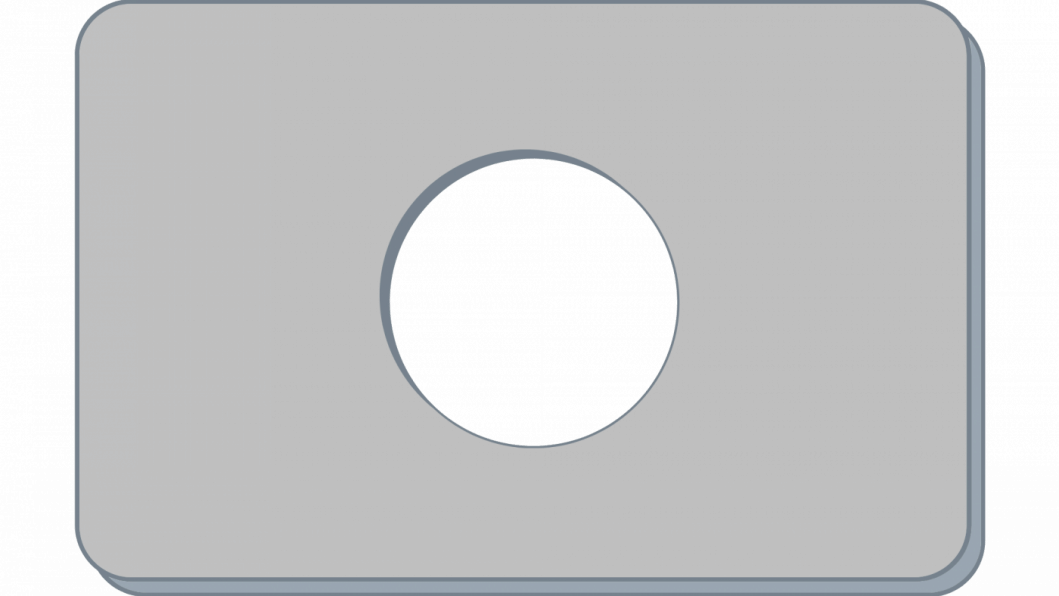It was easy then, but not now
I
"Anything seems commonplace once explained," Dr Watson once said to Sherlock Holmes. After an event happens, it seems more inevitable we had always known its outcome. This is the hindsight bias. The bias has many dimensions, but we'll look at how it affects learning. Let's start with a principle from physics.
II
The Charles' Law (1787) states: the volume of matter is directly proportional to its absolute temperature. This means, when heated, molecules in matter will expand. Simple. Let's see a practical example of Eric Mazur, physicist and educator at Harvard.

Look at the image provided. A rectangular metal plate with a circle cut in the centre. The metal plate is heated up. What will happen to the circle? Read the choices and think.
A. The circle gets larger
B. The circle gets smaller
C. The circle stays the same size
If you're guessing, the correct answer is Option A. The entire plate and the circle gets larger because the molecules of the circle and the plate expand when heated. Are you telling yourself, now that it's explained, it seemed commonplace from the beginning like Dr Watson's statement?
III
What has hindsight bias got to do with learning?
When we learn a new subject, we learn many new concepts. When you watch your professor explain, you think, that was easy. When you sit for homework, how many times do you knock your friends in Messenger asking, "Did you understand what the professor said today? I forgot everything."
You didn't forget. You overestimated what you learned. That's the essence of the hindsight bias. We tend to overestimate the outcome of an event or the validity of a statement only after the event happens, or we know the facts. Look at the following.
IV
In an election, candidate X is the incumbent. Candidate Y is the challenger and the underdog. The media is tilted towards X. Just before the election, X makes a mistake; candidate Y is the victor. The same pundits who had no idea that Y may win, now see with a perfect 20-20 eyesight looking back, where X made mistakes. Everything becomes clear now. These pundits overestimate the past only after they know the outcome of the event.
Coming back to learning. When you face trouble doing homework although you thought you understood in class, you overestimated what you learned in the class. If you think you tend to overestimate what you learn in class after it ends, what do you do?
This time, Sherlock Holmes comes to the rescue. "Elementary, my dear Watson."
V
If overestimation is the bottleneck, be skeptical about learning. We forget a first impression not because we can't remember. We forget because our brain is wired not to perfectly remember an initial judgement. Underestimate what you learned saying, "Let me read the topic again" or "Let me ask my friends what they think." When you see the same thing a second time, you start with the knowledge of what you gained the first time and build on it. Thus, second time round, chances are high, you see the same concept with more clarity. This is where "revision" and "practice" come in.
Remember the men's 2019 Cricket World Cup Final between England and New Zealand? Before Archer's last delivery, it was impossible to predict what the outcome would be. Now that the game is over, doesn't the plot England was destined to win, seem more inevitable?
However, by now, you should have appreciated, it's easy to explain something once it happens or we know the facts.
Asrar Chowdhury teaches economics in classrooms. Outside, he watches Test cricket, plays the flute and listens to music and radio podcasts. Email: [email protected] or [email protected]

 For all latest news, follow The Daily Star's Google News channel.
For all latest news, follow The Daily Star's Google News channel. 



Comments